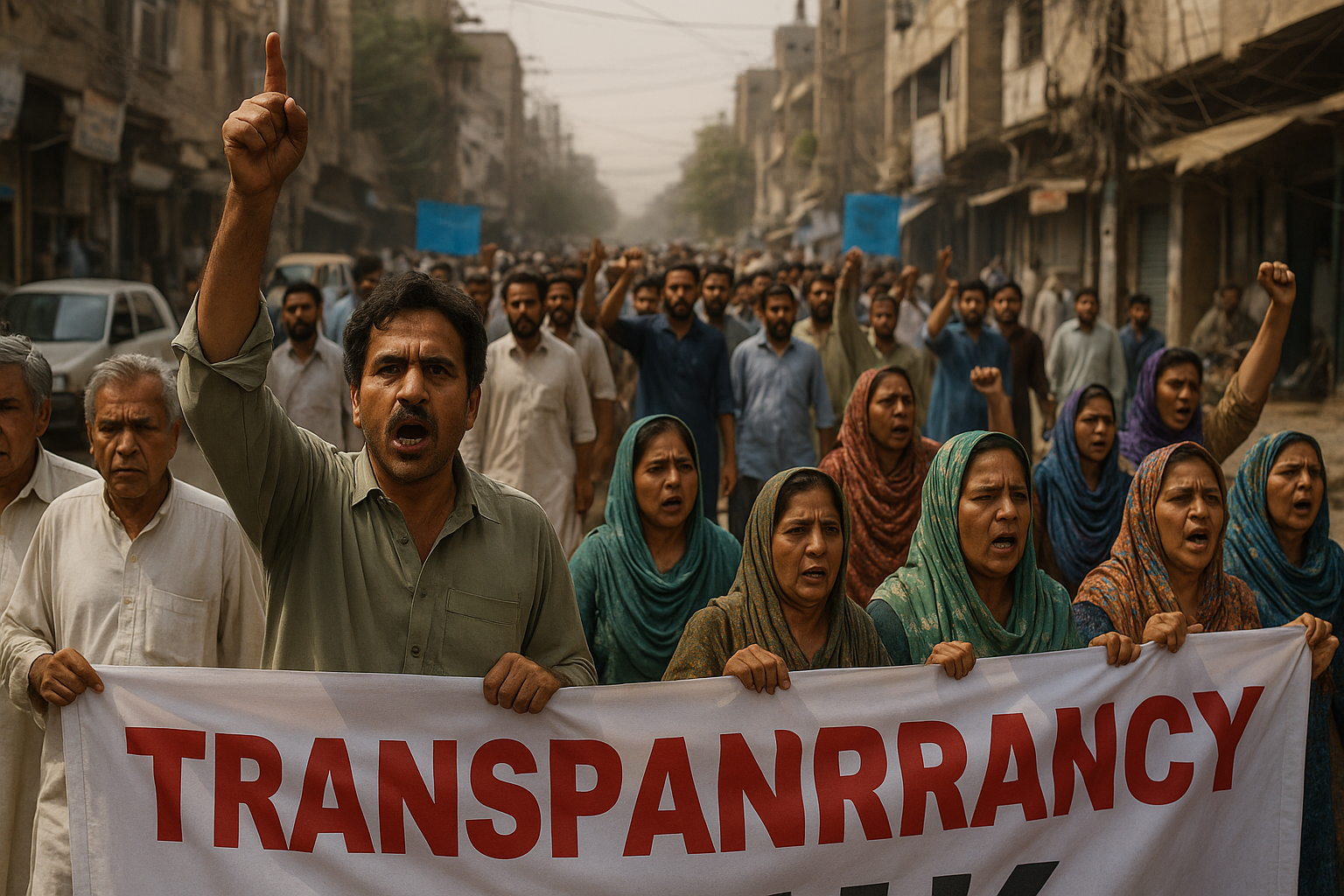Pakistan’s 2025 Survey Urges World Bank to Boost Transparency and Grassroots Focus
The FY2025 Pakistan Country Opinion Survey shows that the World Bank remains highly trusted and familiar among Pakistani stakeholders but faces growing demands for faster, more locally driven, and inclusive engagement. Stakeholders urge the Bank to enhance transparency, responsiveness, and grassroots collaboration to better align with Pakistan’s evolving development priorities.

The FY2025 Pakistan Country Opinion Survey Report, published in 2025 by the World Bank Group's ECR Business Intelligence Team in collaboration with Gallup Pakistan, presents a comprehensive picture of how key stakeholders perceive the Bank's work in the country. Led by José De Buerba and Svetlana Markova, with analytical inputs from Yulia Danilina, Jessica Cameron, Nan Lin, and Sofya Gubaydullina, the study reflects voices from 307 respondents, including officials from government institutions, academia, civil society, media, and the private sector. Conducted between September and November 2024, the survey achieved a 38 percent response rate, higher than the previous FY2021 round, and serves as a key barometer of trust and relevance for the World Bank in Pakistan's development landscape.
Familiarity and Trust on the Rise
The report finds that familiarity with the World Bank Group has grown sharply, with the mean score rising to 7.5 from 6.8 in FY2021. Stakeholders who collaborate directly with the Bank show the highest familiarity levels. Among global institutions, the WBG, the United Nations, and the Asian Development Bank are perceived as the most trusted partners, each securing scores above seven on a ten-point scale. This trust extends across stakeholder groups, positioning the Bank as one of the most credible development actors in Pakistan. Yet, despite the goodwill, respondents noted that the Bank's accessibility and responsiveness remain uneven, particularly at the provincial and local levels. Government and multilateral respondents expressed strong confidence in the Bank's work, while representatives from civil society, local governments, and parliament were more critical, urging the institution to connect more directly with grassroots stakeholders.
Performance and Policy Influence
Perceptions of the WBG's influence on Pakistan's development policy have improved since 2021, with respondents giving a mean score of 7.1, and its effectiveness in achieving development results scoring 6.9. Stakeholders agreed that the Bank plays a relevant role and that its operations generally align with Pakistan's priorities, although these scores are slightly lower than the South Asian regional average. Notably, over half of all participants (52 percent) believed that the Bank had strengthened its work to improve people's lives and become easier to work with. However, respondents expressed concern about slow project approvals and coordination gaps within WBG institutions. Roughly one-fifth said the speed of approvals had worsened, signaling continued frustration with bureaucratic bottlenecks.
Shifting Priorities and Local Engagement
Respondents highlighted a clear shift in Pakistan's development priorities. The most critical areas identified for future WBG focus include education (51%), governance (37%), health (37%), water and sanitation (35%), and climate change (34%), a marked increase for environmental issues compared to FY2021. The Bank's work in pandemic preparedness, gender equity, and disaster risk management received the highest effectiveness ratings. However, its perceived performance in governance, education, and water management has declined, suggesting that stakeholders expect more visible progress in these fields. Many called for the WBG to strengthen institutional capacity, promote accountability, and expand provincial-level partnerships. Though still regarded as a long-term partner (mean score 7.2), ratings for responsiveness (6.3) and staff accessibility (6.1) have weakened since 2021.
Knowledge, Financing, and Reform
Nearly half of the respondents identified financial resources as the Bank's greatest value to Pakistan, followed by knowledge and analytical work, technical assistance, and capacity development. While the timeliness of financial support (6.4) and alignment with Pakistan's needs (6.2) remain moderate, 62 percent of respondents reported using the Bank's knowledge products. Ratings for knowledge work, particularly for contributing to development results and strengthening institutional capacity, rose notably compared to the previous survey. The Bank's global expertise (7.3) is highly valued, but respondents urged for more context-specific, accessible, and locally disseminated research. Many also proposed reducing dependence on foreign consultants and investing more in building domestic technical expertise. Respondents further recommended simplifying procurement rules, shortening approval times, and enhancing project monitoring and evaluation to ensure stronger implementation.
Communication, Outreach, and Public Perception
Communication remains central to improving the World Bank's image and effectiveness in Pakistan. Stakeholders prefer interactive engagement, with 66 percent favoring conferences, workshops, and events, and 55 percent preferring direct contact with WBG staff. Local governments lean toward social media channels, while parliamentarians prefer direct messaging apps. The type of information sought varies; academics and government officials want better access to research and analytical outputs; civil society and local governments seek guidance on how to partner with the Bank; and media professionals emphasize regular updates, impact assessments, and data-driven storytelling. Respondents also called for stronger public visibility, suggesting journalist workshops, short documentaries, and proactive use of digital media to convey the Bank's work and outcomes.
Overall, the report presents a complex but optimistic portrait of the World Bank's standing in Pakistan. Familiarity and trust remain strong, but stakeholders are demanding a more agile, transparent, and locally rooted institution, one that delivers faster, listens more, and adapts its global expertise to Pakistan's diverse realities. The overarching message is that while the World Bank continues to be seen as a reliable and capable partner, its future credibility will depend on how effectively it bridges the gap between technical precision and on-the-ground partnership, translating trust into tangible, inclusive results for Pakistan's development journey
- FIRST PUBLISHED IN:
- Devdiscourse
ALSO READ
-
World Bank Backs Kerala's Health Revolution with $400M Boost
-
World Bank Boosts Kerala Health with $280M Loan
-
World Bank Approves $280M Program to Boost Kerala’s Health System and Elderly Care
-
World Bank Report Estimates $183M in Damages from Deadly Afghanistan Earthquake
-
World Bank Funds $280M Health Overhaul in Kerala









